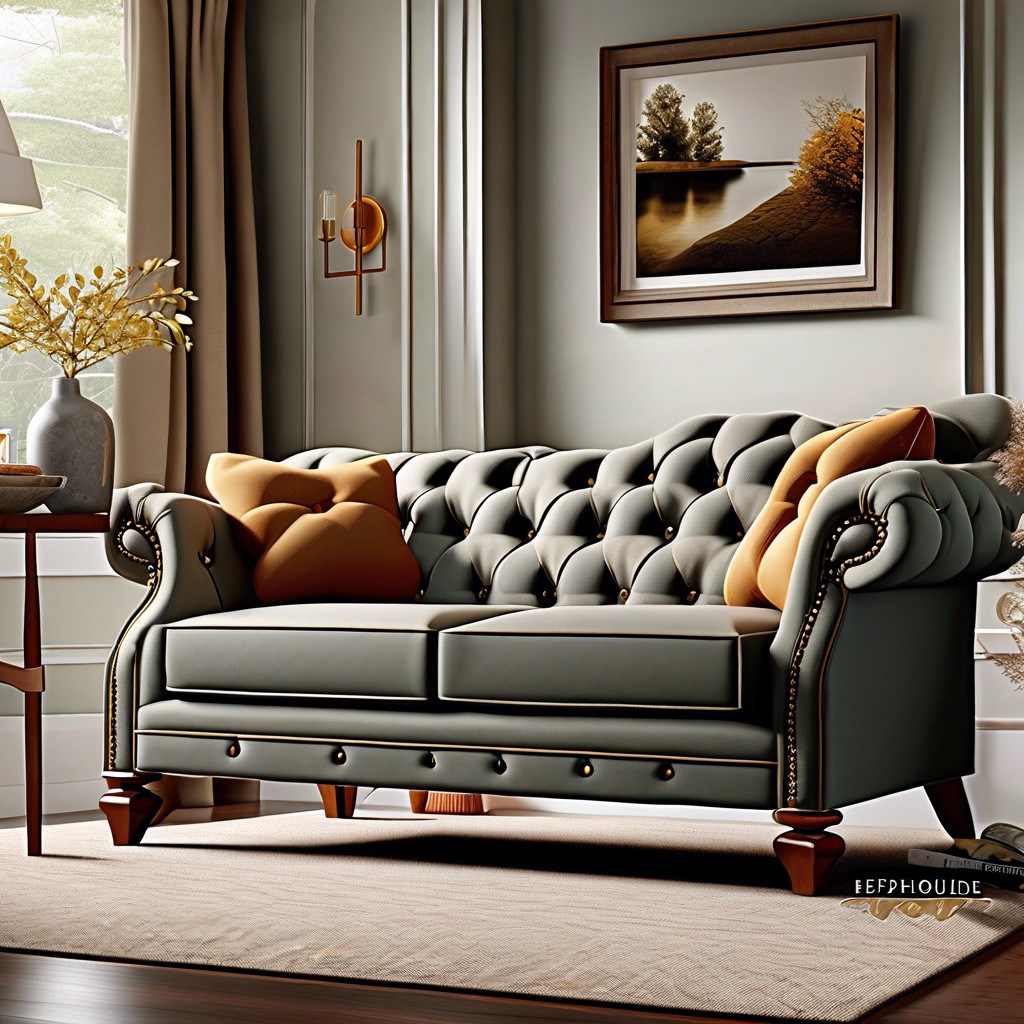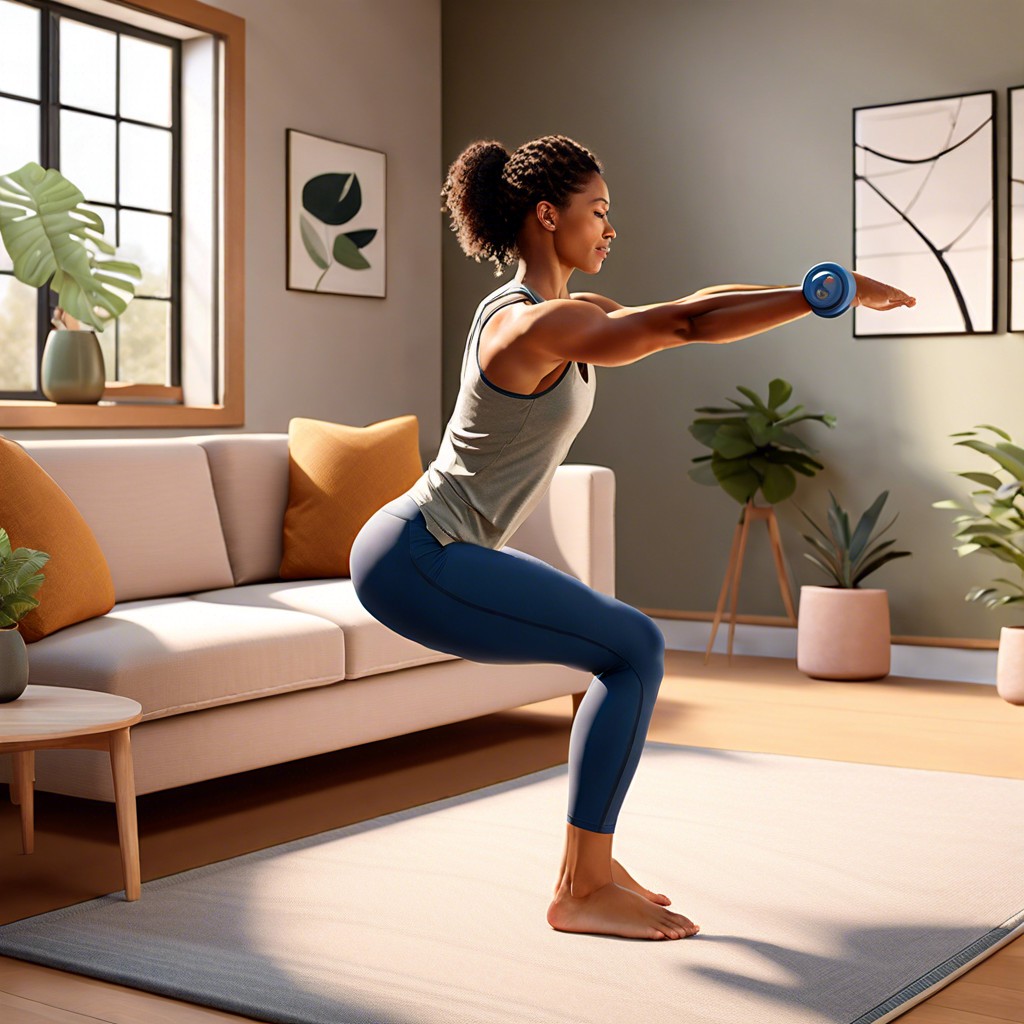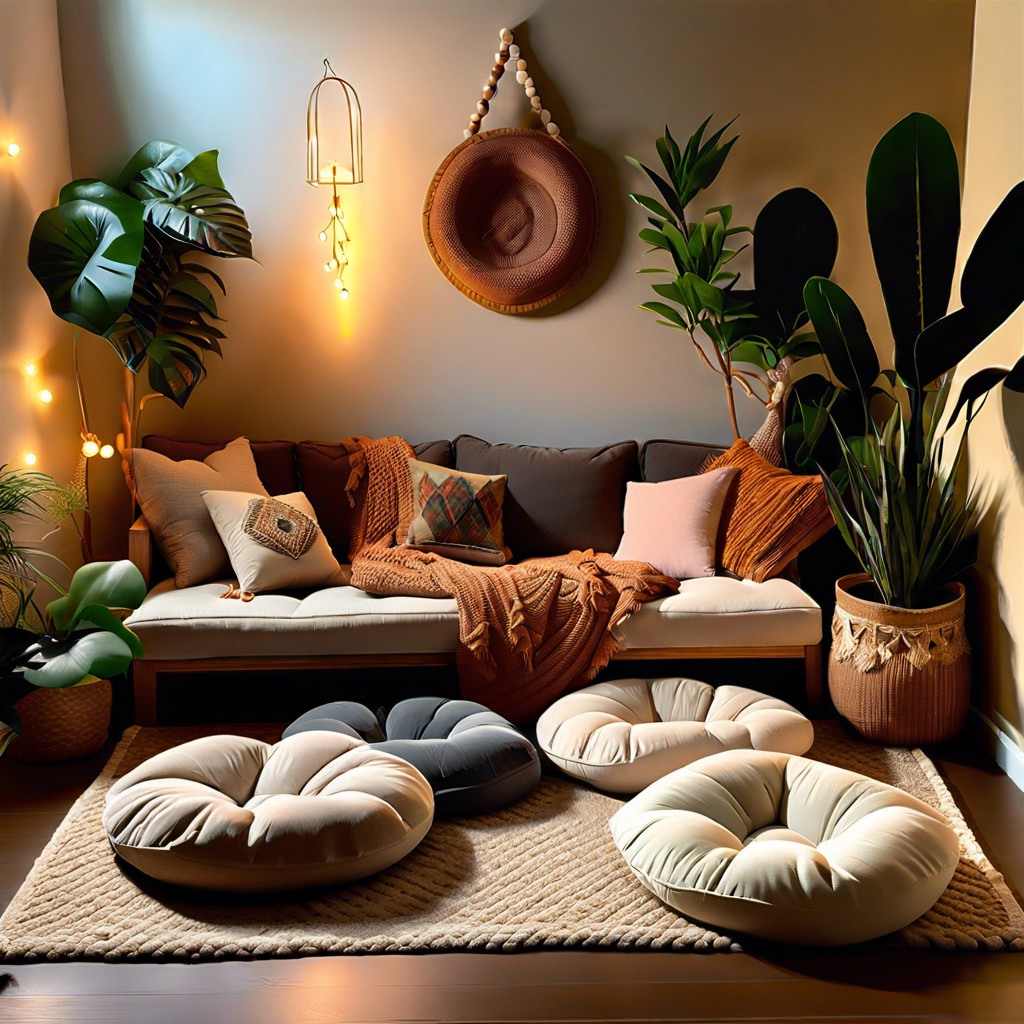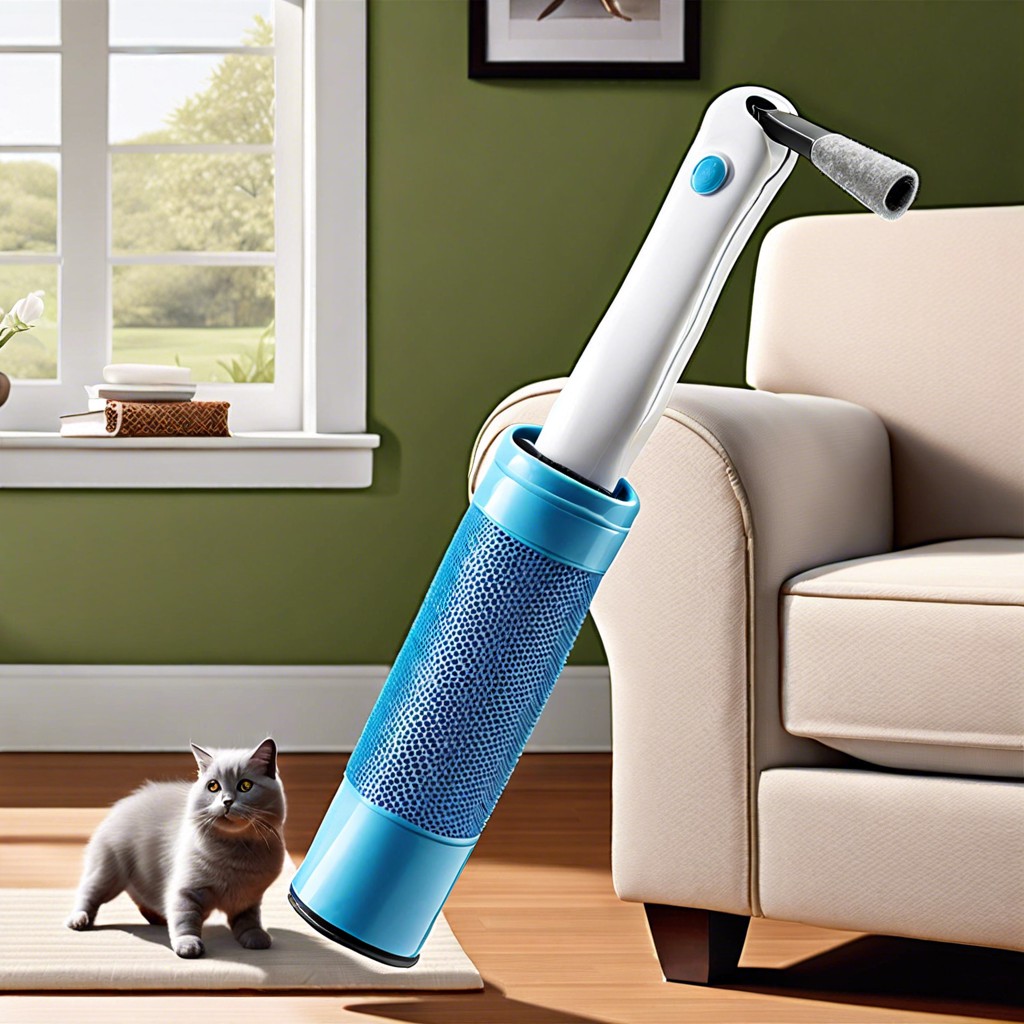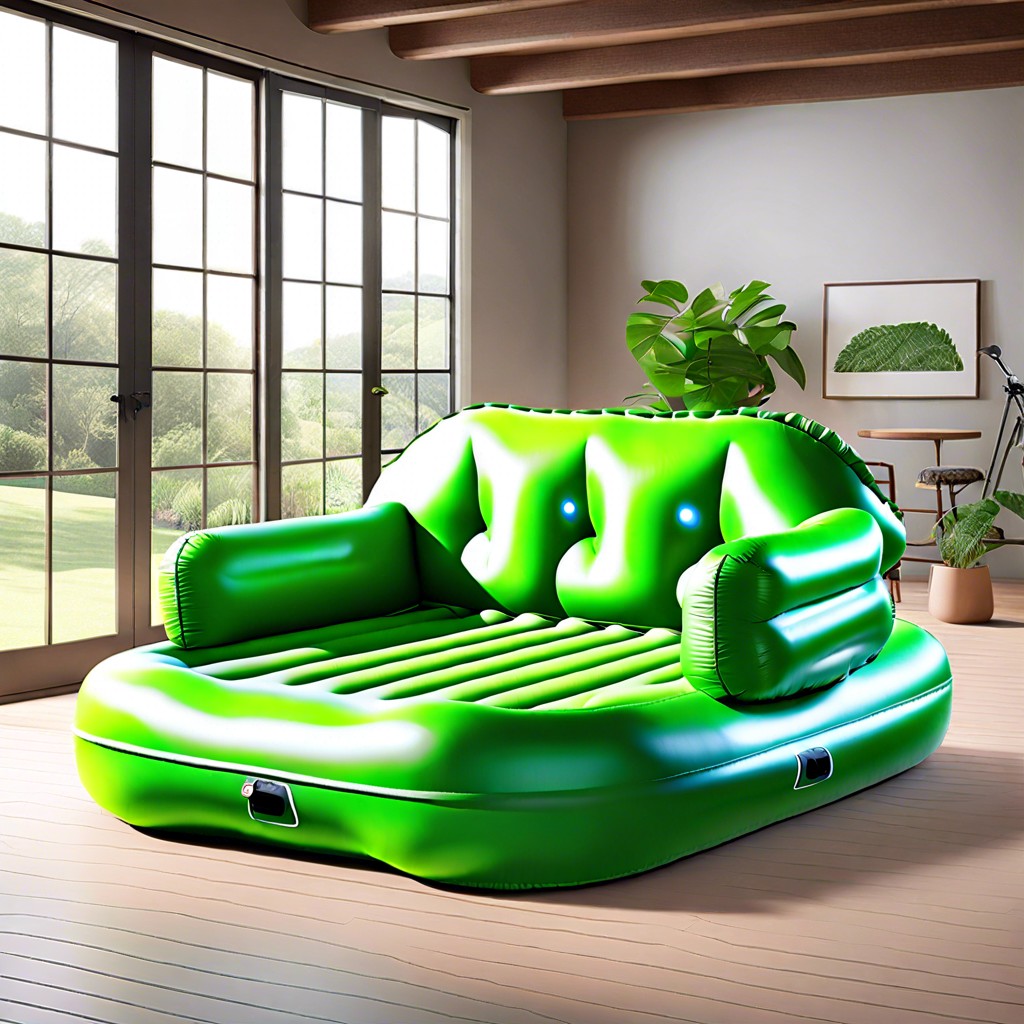Last updated on
Discover the intriguing reasons behind your canine companion’s habit of rubbing against the couch and how to address this behavior effectively.
Dogs are fascinating creatures that never cease to amaze us with their quirky behaviors. One such behavior that often leaves pet owners scratching their heads is when their furry friend rubs against the couch.
At first glance, it may seem like a harmless and amusing act, but have you ever wondered why dogs do this? Is it just a random quirk or is there a deeper reason behind it? In this article, we’ll explore the possible reasons why your dog loves rubbing against the couch and what it could mean for their overall health and well-being. So, let’s dive in!
Key takeaways:
- Canine scent marking: Dogs rub against the couch to mark their territory.
- Seeking comfort and familiarity: Rubbing against furniture helps dogs feel secure and relaxed.
- Itchy skin relief: Rubbing can provide relief from allergies or skin irritation.
- Stress relief and energy release: Rubbing helps dogs release pent-up energy and reduce anxiety.
- Communication and seeking attention: Rubbing can be a way for dogs to initiate contact or convey a message to their owners.
Table of Contents
Canine Scent Marking
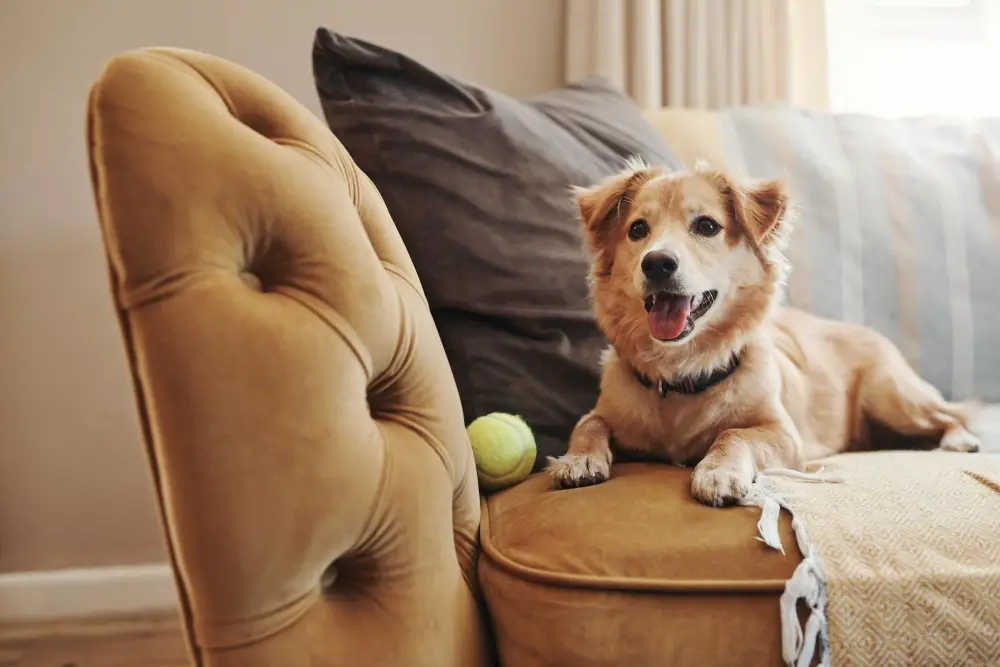
One of the most common reasons why dogs rub against the couch is to mark their territory with their scent. Canine scent marking is a natural behavior that allows dogs to communicate with other animals and establish boundaries in their environment.
By rubbing against furniture, walls, or any object they come across, dogs leave behind pheromones that convey important information about themselves such as age, sex, and reproductive status.
Scent marking can also be a way for your dog to assert dominance over its surroundings or signal its presence in an area. This behavior is particularly common among male dogs who are more likely to engage in territorial marking than females.
While canine scent marking may seem like an innocent act at first glance, it can become problematic if your dog starts doing it excessively indoors or on inappropriate objects such as carpets or curtains.
Scent Change After Bath
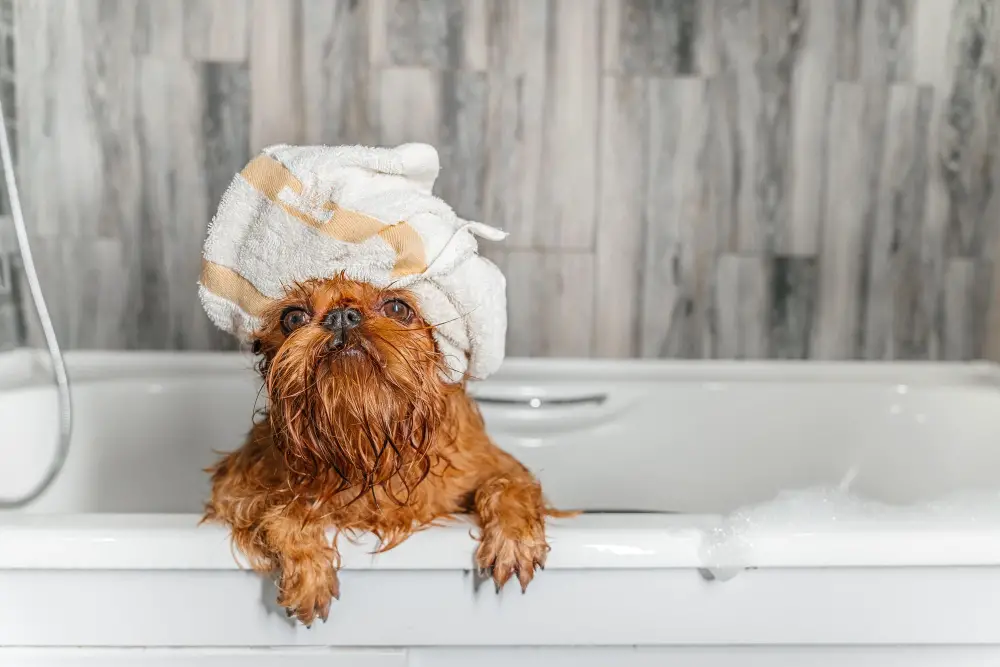
When you give your furry friend a bath, you may notice that their scent changes. This is because bathing removes the natural oils from your dog’s skin and coat, which can alter their odor.
While some dogs may not like the change in scent after a bath and try to rub against furniture or other objects to regain their familiar smell, others may enjoy exploring new scents with renewed vigor. It’s important to note that excessive rubbing against furniture could be an indication of underlying skin irritation or allergies caused by shampoos or grooming products used during baths.
To prevent this behavior from becoming problematic for both you and your pet, ensure that any grooming products used are suitable for your dog’s specific needs. Provide plenty of opportunities for olfactory stimulation through walks in different environments where they can pick up new smells without resorting to rubbing on household items.
Picking Up Smells
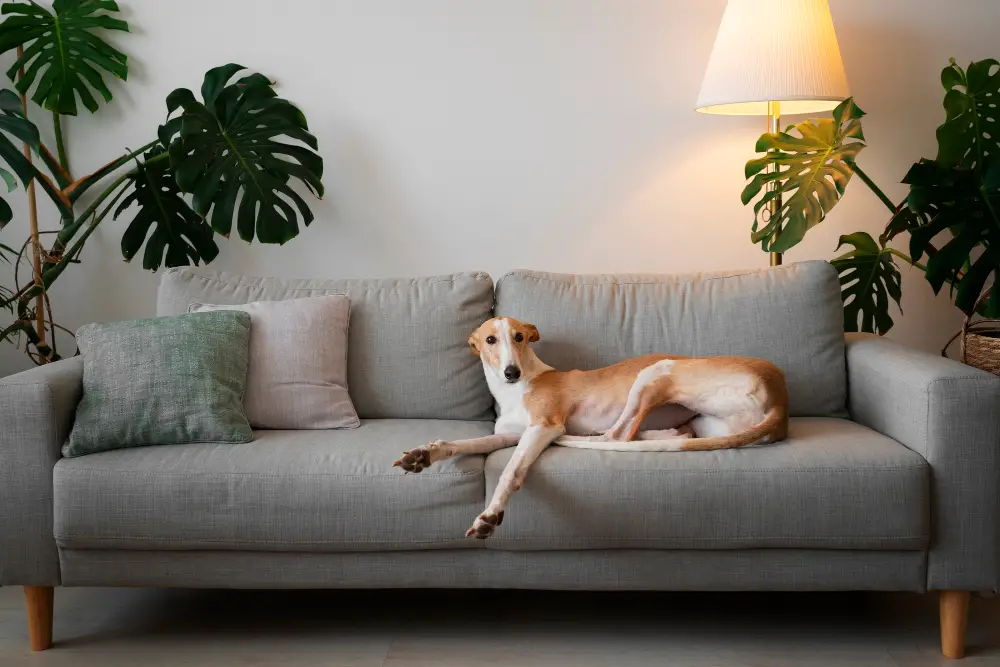
When your dog rubs against the couch, they may be picking up smells that you can’t detect. Dogs have a highly developed olfactory system that allows them to pick up even faint scents from their surroundings.
Your dog’s rubbing behavior could be an attempt to collect these smells on their fur so that they can analyze them later. This is especially true if your furry friend has been outside or in contact with other animals recently.
Picking up smells is a natural instinct for dogs, and it helps them gather information about their environment and potential prey or predators. However, this behavior can also lead to some unwanted consequences like bringing in dirt or allergens into your home.
Olfactory Stimulation

Rubbing against the couch is one way that dogs can stimulate their olfactory senses. When a dog rubs against furniture or other objects in your home, they are picking up scents from their surroundings and depositing some of their own scent as well.
This behavior is especially common among dogs who spend a lot of time indoors or those who don’t get enough exercise and mental stimulation. By rubbing against furniture, your dog may be trying to create more interesting smells in their environment.
If you notice that your dog seems particularly interested in certain areas of the house when rubbing themselves on furniture, it could be because there’s something specific about that spot that appeals to them – perhaps another pet has been there before or maybe there’s a lingering food scent.
While this behavior might seem odd at first glance, it’s perfectly normal for dogs to engage in olfactory stimulation through rubbing on surfaces like couches.
Asserting Dominance
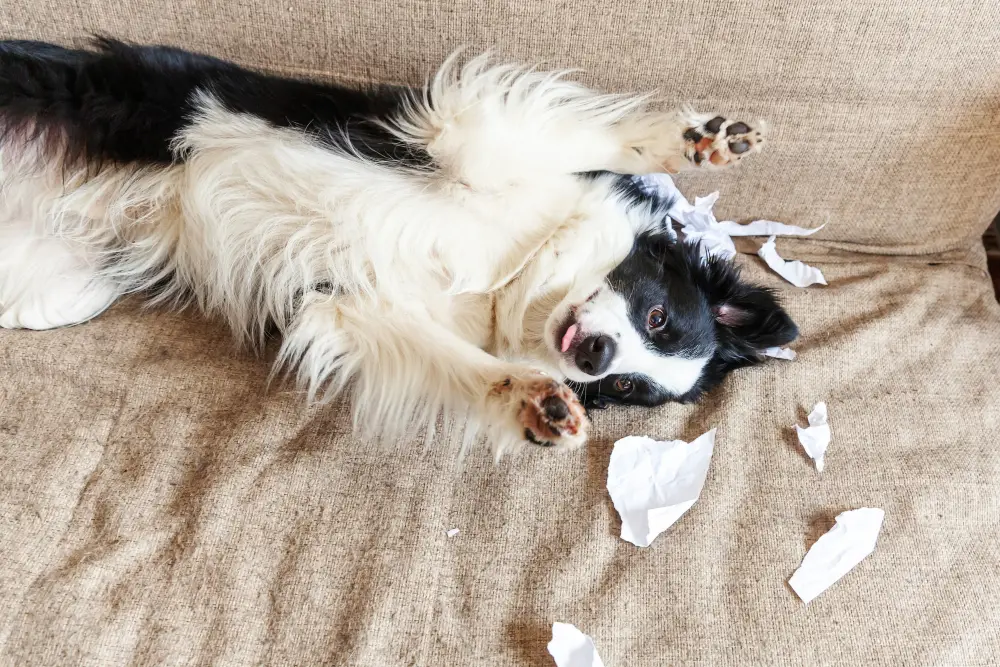
Rubbing against the couch can be one way for your dog to assert their dominance over their territory. By leaving behind their scent on the furniture, they are marking it as theirs and sending a message to other dogs that this is where they belong.
However, it’s important to note that not all dogs rub against furniture for this reason alone. Some may do so out of habit or simply because it feels good.
It’s essential to observe your dog’s behavior closely and look for other signs of dominant behavior such as growling or guarding possessions.
If you suspect that your dog is rubbing against the couch primarily due to asserting dominance issues rather than just seeking comfort or relief from itching skin problems, there are steps you can take towards correcting this behavior effectively without resorting harsh punishment methods like physical abuse which could lead them into more aggressive behaviors in future.
Anxiety and Stress Relief
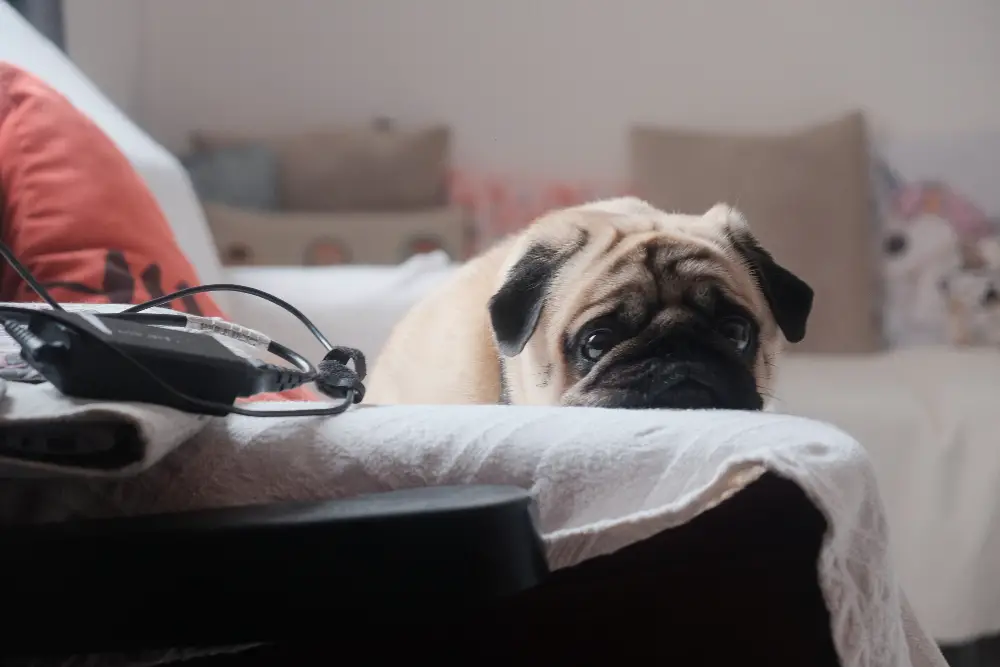
Dogs can also experience anxiety and stress themselves. Rubbing against the couch may be a sign that your dog is feeling anxious or stressed out.
When dogs feel anxious or stressed, they often seek ways to relieve their tension. One way they do this is by rubbing against objects like furniture or walls.
This behavior helps them release pent-up energy and provides a calming sensation.
If you notice your dog frequently rubbing against the couch, it’s important to identify what might be causing their anxiety in the first place so that you can address it effectively. Common triggers of canine anxiety include loud noises (like thunderstorms), separation from owners for extended periods of time, changes in routine or environment (such as moving homes), illness/injury/pain/discomforts etc.
Stress Relief and Energy Release
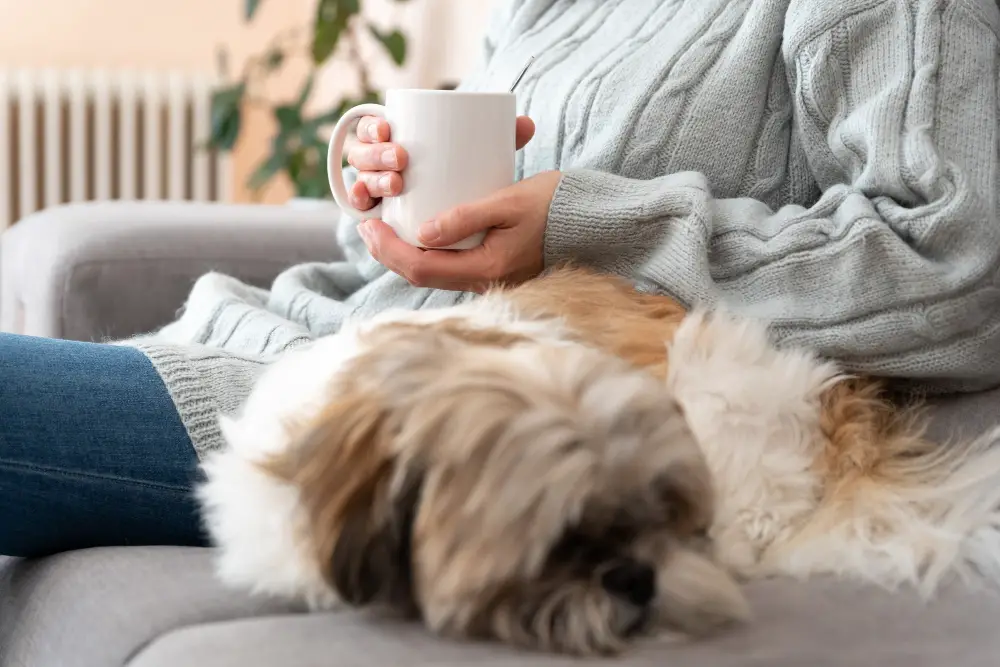
Rubbing against the couch is one way that dogs may relieve their stress and release pent-up energy. This behavior can be especially common in high-energy breeds or those who don’t get enough exercise or mental stimulation.
When a dog rubs against the couch, they are essentially giving themselves a massage that helps to relax their muscles and calm their nerves. The pressure of rubbing against something provides sensory input that can have a calming effect on your furry friend’s nervous system.
If you notice your dog frequently rubbing against the couch or other objects in your home, it may be an indication that they need more physical activity or mental stimulation to help them cope with stressors in their environment. Consider increasing playtime with interactive toys such as puzzle feeders or taking longer walks outside to provide additional opportunities for exercise and exploration.
Communication With Humans
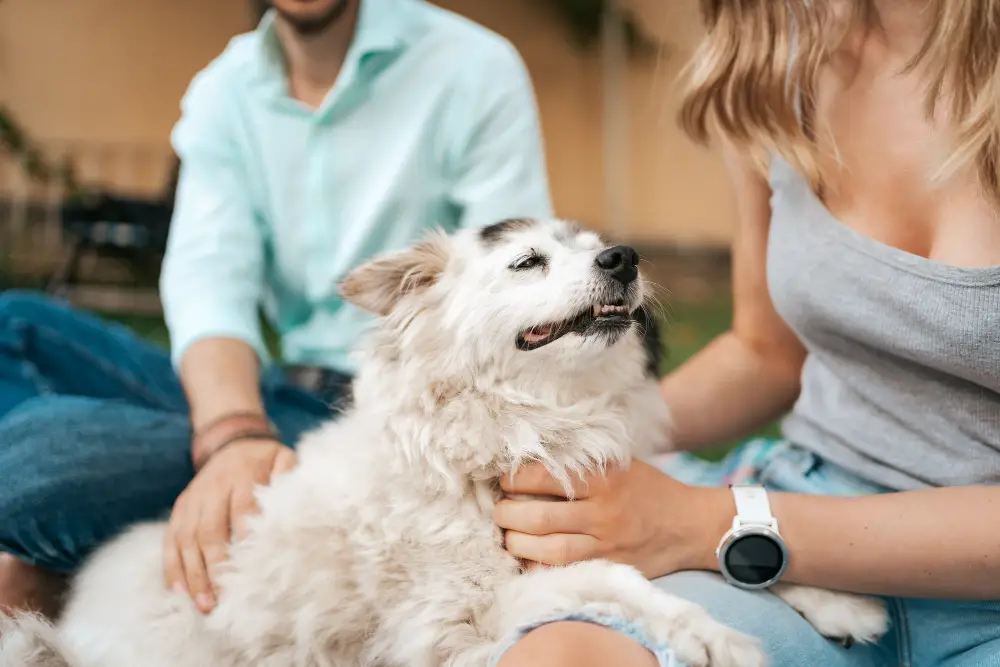
Rubbing against the couch can be a way for your furry friend to initiate contact or convey a message to you. For instance, if your dog rubs against the couch while making eye contact with you, it could mean they want attention or affection from you.
On the other hand, if they do so when feeling anxious or stressed out, it could be their way of seeking comfort and reassurance from you. By rubbing against something familiar like the couch, dogs may feel more secure in an otherwise stressful situation.
It’s important to pay attention to your dog’s body language and vocal cues when interpreting their behavior as this will help determine what message they’re trying to communicate through rubbing against furniture. In some cases, excessive rubbing may indicate an underlying medical condition such as allergies or skin irritation that requires veterinary attention.
Reducing Boredom and Restlessness
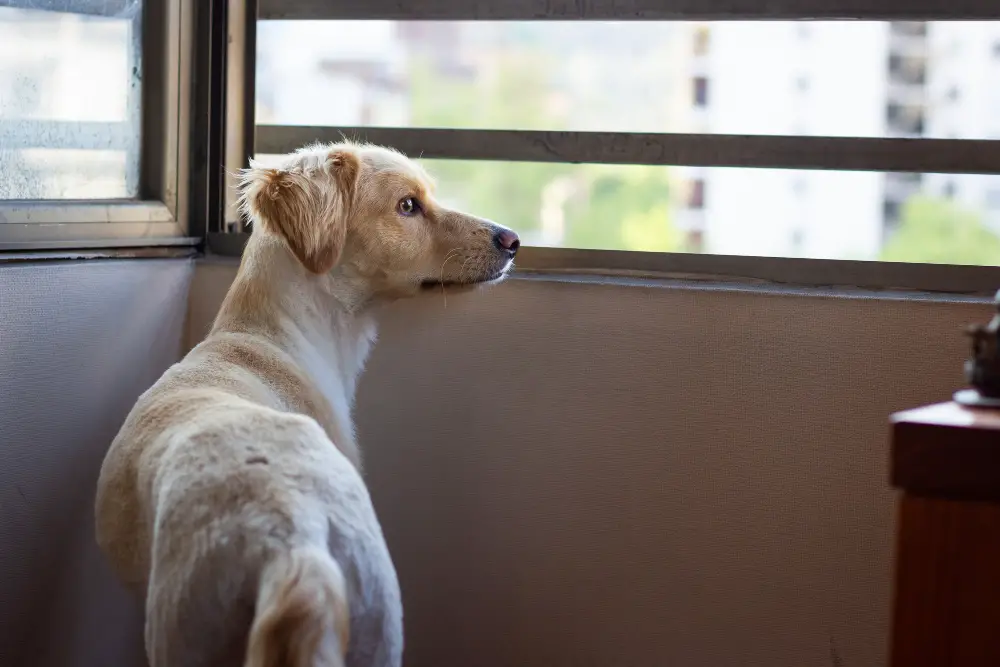
When they don’t get enough exercise or playtime, they can become bored, restless, and even destructive. Rubbing against the couch is one way dogs may try to alleviate their boredom or restlessness.
By rubbing against the couch, your dog may be trying to release pent-up energy or frustration. This behavior can also provide a form of self-stimulation that helps them feel more engaged with their environment.
To reduce your dog’s boredom and restlessness levels, it’s important to provide them with plenty of opportunities for exercise and playtime throughout the day. Regular walks outside in nature can help stimulate their senses while providing an outlet for excess energy.
Interactive toys such as puzzle feeders or chew toys are also great options for keeping your furry friend mentally stimulated when you’re not around. Training sessions that challenge both mind and body will keep them engaged while strengthening your bond together.
Playful Behavior
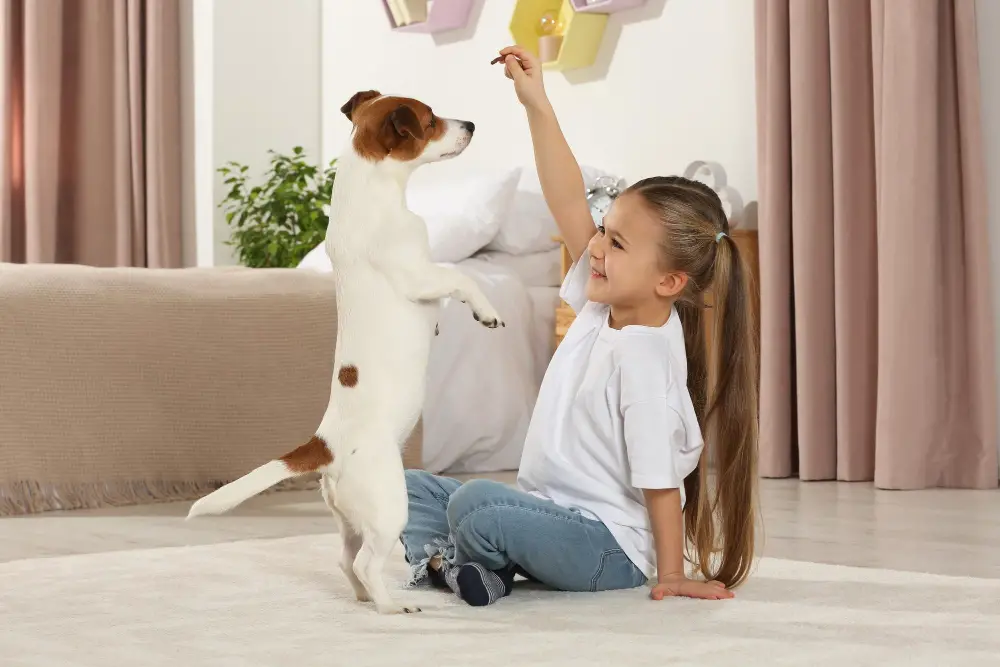
Sometimes, dogs rub against furniture as a way to initiate playtime with their owners or other pets in the household. They may also do it simply because they enjoy the sensation of rubbing up against something soft and comfortable.
If your dog is exhibiting this behavior as part of playtime, it’s important to engage with them in an appropriate manner. Encourage interactive games like fetch or tug-of-war instead of roughhousing on furniture which could lead to damage or injury.
However, if you notice that your dog’s playful behavior has become excessive or disruptive – such as constant barking for attention – then it might be time to reassess how much exercise and stimulation they’re getting throughout the day. Dogs need plenty of physical activity and mental stimulation to keep them happy and healthy; otherwise, they may resort to destructive behaviors like chewing on furniture out of boredom.
Seeking Attention and Affection
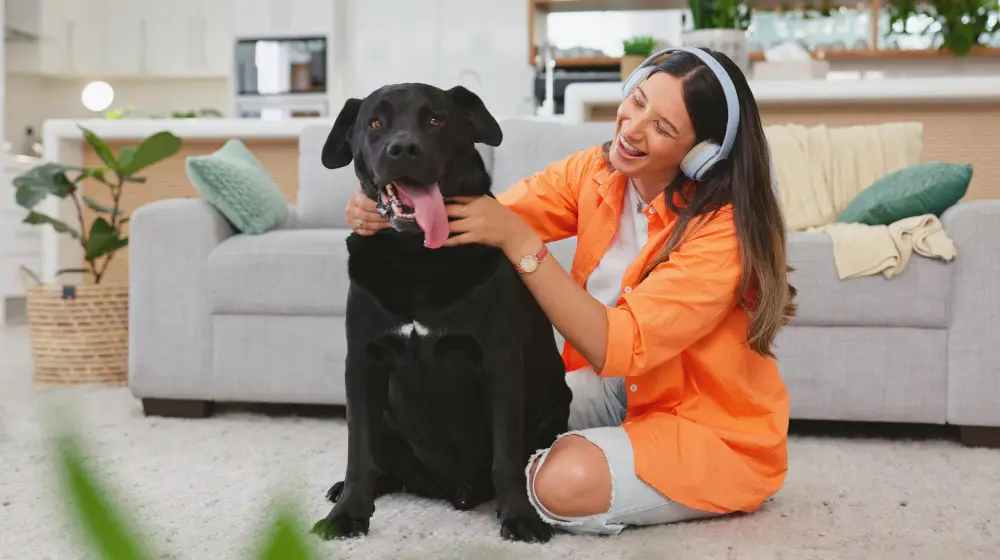
Rubbing against the couch can be a way for your furry friend to seek out physical contact with you or other members of the household. This behavior is often seen in dogs who feel neglected or lonely, especially if they spend long hours alone at home.
If your dog rubs against the couch as soon as you come home, it could be a sign that they missed you and want some quality time together. Similarly, if your pooch nudges his head under your hand while rubbing against the sofa, he may just want some extra love and attention.
It’s important to note that seeking attention through rubbing isn’t always negative behavior; it’s simply another way for dogs to communicate their needs with us humans. However, excessive rubbing can become problematic when it interferes with daily activities such as eating or sleeping.
Comfort and Familiarity
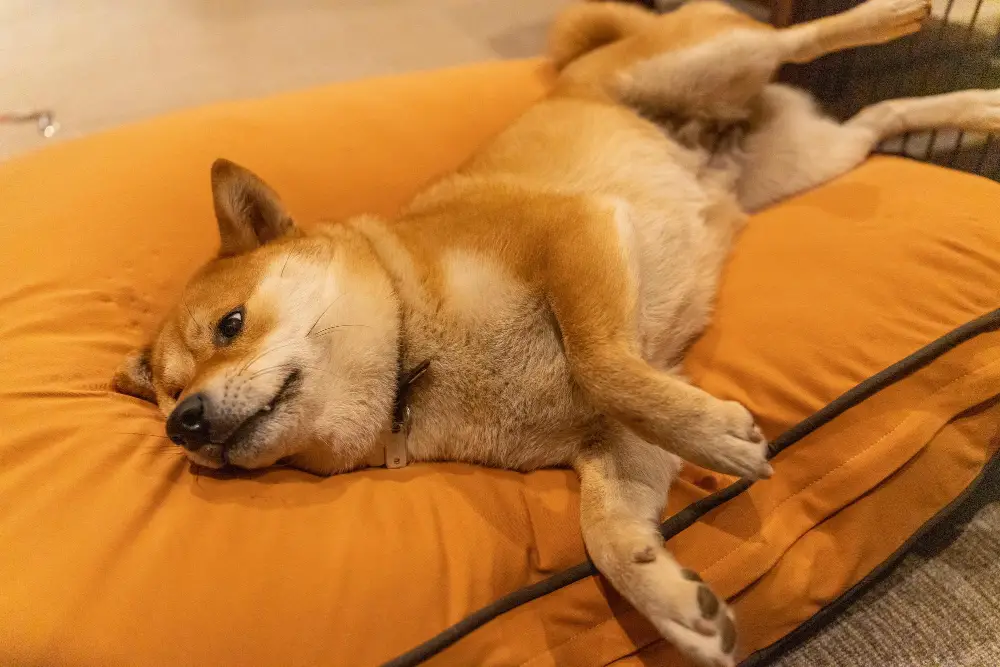
They seek comfort and familiarity in their surroundings, which is why they often rub against the couch or other objects in your home. This behavior helps them feel secure and relaxed, especially when they’re feeling anxious or stressed.
For example, if you’ve recently moved to a new house with your furry friend, they may be feeling overwhelmed by all the unfamiliar smells and sights around them. Rubbing against furniture that carries their scent can help ease their anxiety by creating a sense of familiarity.
Similarly, if you’ve just returned from a long trip away from home without your doggo companion, they may have missed you terribly! Rubbing up against the couch where you usually sit can provide them with some much-needed comfort until things return to normal.
While rubbing against furniture might seem like an odd behavior at first glance; it’s actually quite common among dogs for various reasons such as marking territory or seeking attention/affection.
Itchy Skin Relief
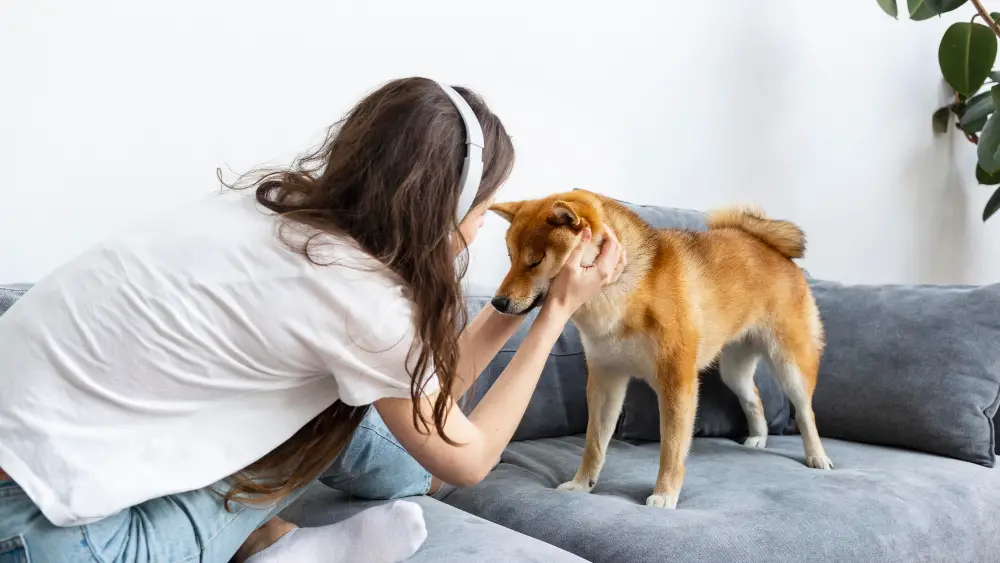
Dogs can suffer from various skin conditions that cause discomfort and lead to excessive scratching, biting, and rubbing. Some common causes of itchy skin in dogs include allergies, fleas or ticks infestations, dryness due to weather changes or bathing products.
To provide relief for your furry friend’s itchy skin at home you can try some natural remedies such as oatmeal baths which soothe irritated areas and reduce inflammation. You may also consider using coconut oil which has anti-inflammatory properties that help alleviate itching while moisturizing the affected area.
However if these remedies do not work after several attempts then you should consult with a veterinarian who will diagnose any underlying medical condition causing the itchiness and prescribe appropriate treatment options including medication if necessary.
Scratching an Itch

Dogs can develop itchy skin for various reasons, such as allergies, dry skin, or infestations. When they feel uncomfortable and need relief from itching sensations on their body, they may rub themselves against furniture or other surfaces to alleviate the discomfort.
However, rubbing alone may not be enough to relieve intense itching in some cases. In these situations, your dog might resort to scratching with their paws or teeth instead of rubbing against objects around them.
If you notice that your dog is excessively scratching themselves and showing signs of irritation like redness or inflammation on their skin surface after a while; it’s time for a visit with your veterinarian who will diagnose any underlying medical conditions causing this behavior and provide appropriate treatment options accordingly.
Dry Skin Issues
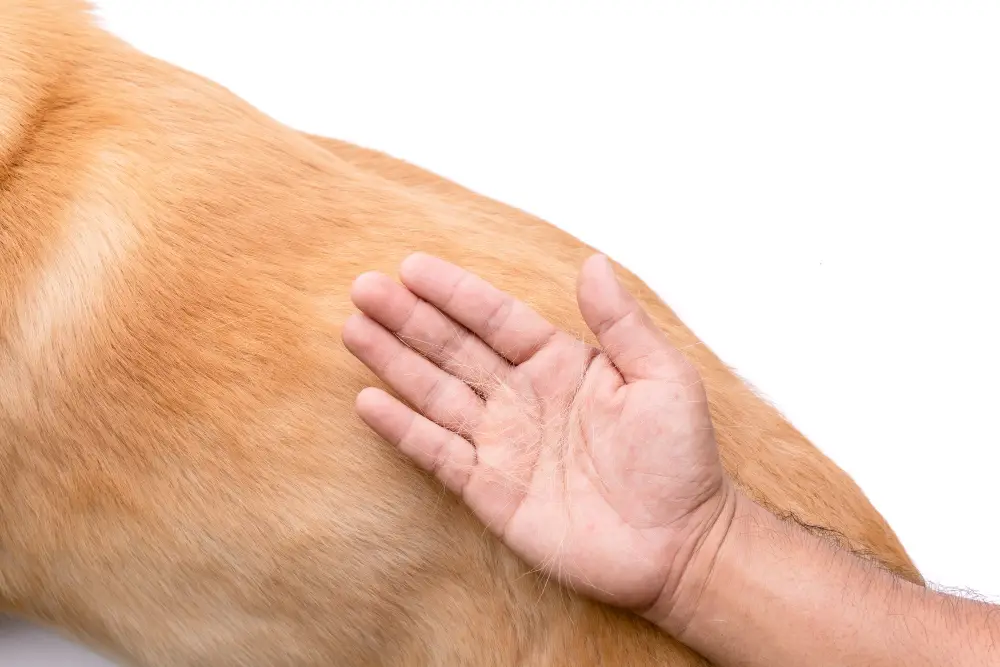
When a dog’s skin becomes dry, it can cause itching and discomfort, leading them to seek relief by rubbing against surfaces like furniture. Dry skin in dogs can be caused by various factors such as allergies, poor nutrition or grooming habits.
To address this issue effectively, you should first identify what is causing your dog’s dry skin. If it’s due to an underlying medical condition or allergy, consult with your veterinarian for proper diagnosis and treatment options.
In addition to seeking veterinary care when necessary, there are several things you can do at home to help alleviate dryness in your pet’s coat. Regular grooming sessions with high-quality shampoos designed for sensitive canine skins will help keep their fur clean while also moisturizing their coat.
You may also want to consider adding supplements rich in omega-3 fatty acids into their diet as they have been shown effective at improving overall coat health while reducing inflammation associated with allergic reactions that could lead up-to-dry-skin issues.
Grooming and Shedding
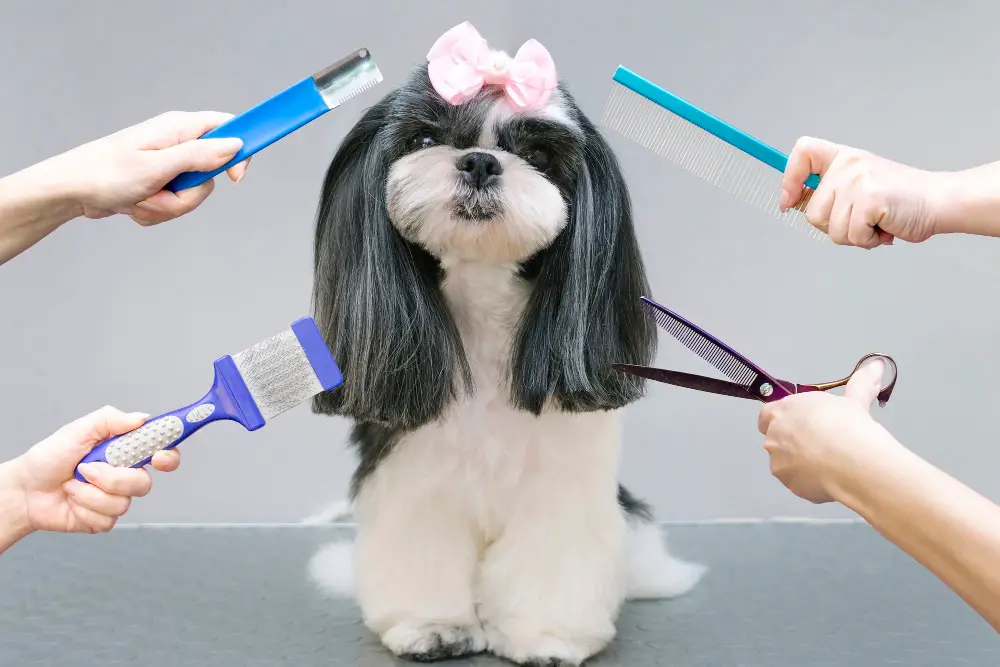
Grooming not only helps maintain your dog’s appearance but also promotes good hygiene by removing dirt, debris, and dead hair from their coat. However, some dogs may find the grooming process uncomfortable or stressful.
As a result of this discomfort or stress during grooming sessions, dogs may rub against furniture as a way to relieve themselves of any irritation caused by mats in their fur or shedding. Rubbing against the couch can help remove loose hairs that have become trapped in the coat while also providing relief from itching.
Post-Grooming Grind

This behavior is known as post-grooming grind and can be attributed to a few different factors.
Firstly, dogs are creatures of habit and routine. When they undergo a significant change like getting groomed, it can throw off their sense of familiarity and comfort.
Rubbing against furniture or other objects helps them re-establish that feeling of security.
Secondly, grooming often involves the use of shampoos or other products with strong scents that may not be familiar to your dog’s nose. By rubbing themselves on familiar objects around the house, they’re able to mask these new smells with ones that are more comforting for them.
Lastly, post-grooming grind could simply be an expression of joy and relief from being clean again! Dogs love rolling around in dirt and mud but also enjoy feeling fresh after a good bath – rubbing up against things might just be their way of celebrating this newfound cleanliness!
Allergies and Skin Conditions
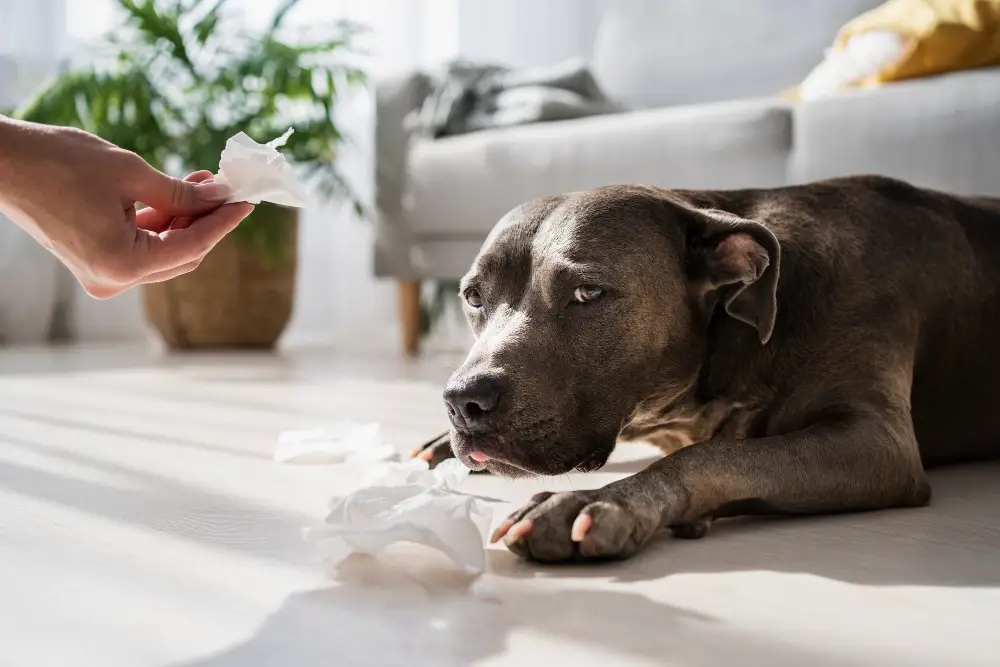
If your dog is experiencing these symptoms along with other signs such as redness or inflammation on their skin or ears, it could be due to an allergic reaction to something in their environment. Common allergens include pollen from plants and trees; dust mites; mold spores; flea bites; certain foods like wheat gluten or dairy products.
If you suspect that your dog has allergies or a skin condition causing them discomfort when they rub against the couch frequently than usual. It’s essential to take them for a check-up with your veterinarian who will diagnose the underlying issue through various tests such as blood workup and allergy testing.
Infestations and Infections
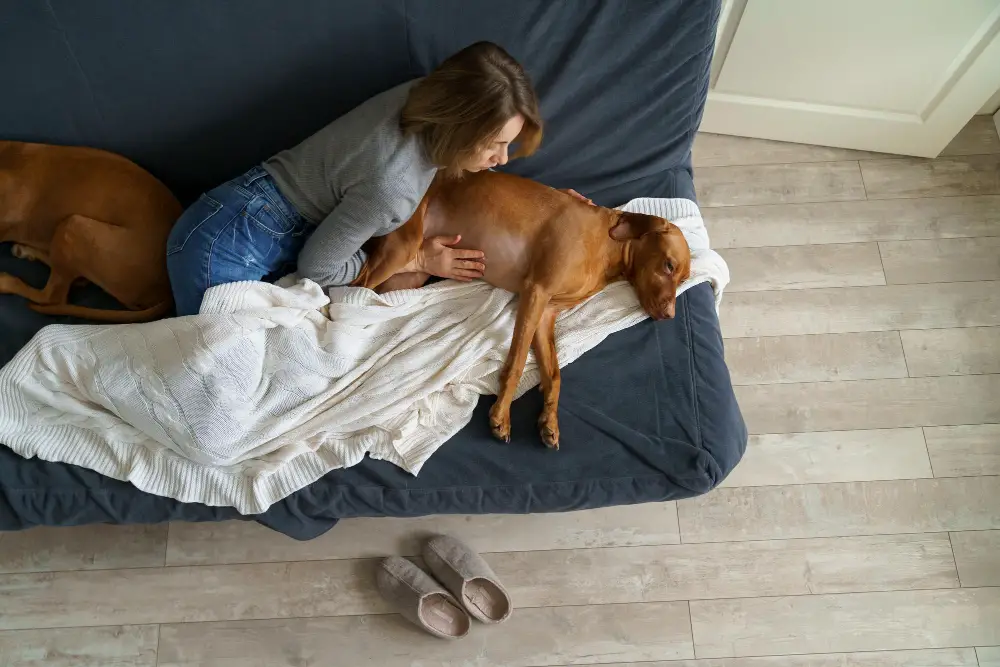
Fleas, ticks, mites, and other parasites can cause intense itching and discomfort for dogs. If you notice that your furry friend is rubbing against the couch more frequently than usual or scratching excessively, it could be a sign of an infestation.
In addition to external parasites like fleas and ticks, dogs can also suffer from various skin infections caused by bacteria or fungi. These infections can lead to redness, inflammation, hair loss as well as itchiness which may prompt them to rub themselves on surfaces such as furniture.
If you suspect that your dog has an infestation or infection causing their behavior of rubbing against the couch persistently then it’s important to take them for a check-up with a veterinarian who will diagnose any underlying issues they might have. Treatment options vary depending on what type of parasite or infection is present but typically include medicated shampoos/creams/sprays along with oral medications if necessary.
Medical Conditions and Concerns
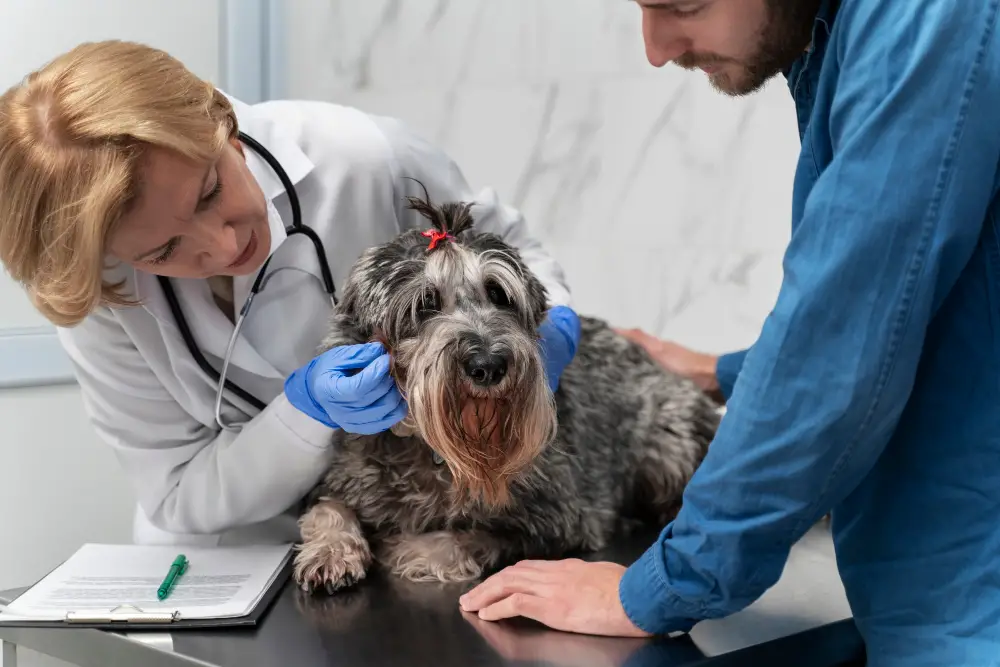
If your dog’s rubbing seems excessive or out of character, it may be worth consulting with your veterinarian to rule out any potential health issues.
One common cause for increased rubbing and scratching in dogs is allergies. Dogs can develop allergies to a variety of things such as food ingredients, environmental factors like pollen and dust mites, or even flea bites.
Allergies can lead to skin irritation and itchiness which could prompt more frequent rubs against furniture.
Another possible reason for excessive rubbing could be due to parasites such as fleas or ticks that irritate the skin causing discomfort leading them towards constant itching and scratching themselves on surfaces around them.
In some cases, compulsive behaviors like obsessive-compulsive disorder (OCD) may also manifest through repetitive actions like couch-rubbing in dogs. This condition requires professional intervention from a veterinary behaviorist who will work with you on developing strategies that help manage this type of behavior effectively.
It’s important not to ignore persistent couch-rubbing habits in your furry friend since they might indicate something more serious than just playful antics!
FAQ
Why is my dog rubbing his body on everything?
Your dog may be rubbing his body on everything to relieve an itch, which could indicate an underlying issue such as dry skin, allergies, or fleas.
Why does my dog rub against walls and furniture?
Your dog rubs against walls and furniture to relieve itchiness caused by dry skin, which can result from frequent bathing or using the wrong shampoo.
Why does my dog rub against the couch after a bath?
Your dog rubs against the couch after a bath to dry off by rolling around on different surfaces.
Why does my dog rub his back against things?
Your dog rubs his back against things to either mask their scent, imitate wolf ancestors’ behavior, or release their scent as part of reproductive behavior.
What are the common reasons for a dog rubbing its face on various surfaces?
Common reasons for a dog rubbing its face on various surfaces include allergies, pain, skin irritation, or simply an attempt to clean their face.
How can I prevent or reduce my dog’s excessive rubbing against household items?
To prevent or reduce your dog’s excessive rubbing against household items, address any underlying health issues, provide regular grooming, and redirect their behavior using positive reinforcement methods.
Are there any health concerns associated with dogs constantly rubbing against objects?
Health concerns associated with dogs constantly rubbing against objects may include skin irritation, allergies, or underlying medical issues.
